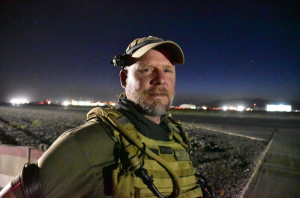Will Attacks on Journalists Be Limited to War Zones?
 Since 1992, about 1200 journalists have been killed across the globe, with 27 in Afghanistan alone. On Sunday, National Public Radio’s David Gilkey died while traveling with an Afghan Army convoy that was ambushed in Helmand Province.
Since 1992, about 1200 journalists have been killed across the globe, with 27 in Afghanistan alone. On Sunday, National Public Radio’s David Gilkey died while traveling with an Afghan Army convoy that was ambushed in Helmand Province.
Being embedded with a superior strike force may seem relatively safe, such as during Desert Shield. The US was fighting the classic “massed army” war that it knew best. Though the military hadn’t forgotten fighting Rommel’s Afrika Korps during WWII, the war in Afghanistan is more like Vietnam. Hit-and-run guerrilla bands strike according to opportunity, and Westerners are a preferred target, as are higher-ranking officers and foreign advisors. Even so, it’s likely that Gilkey’s vehicle was targeted just because it was the “enemy.”
Wartime journalists are typically portrayed as neutral innocents, primarily reporting the facts, and the humanitarian impact of war on civilians. We remember that both sides during WWII deliberately set out to kill civilians as enablers of their country’s war machine. The massive incendiary bombings of Dresden and Tokyo were intended to break the enemy’s will to continue fighting. Women, children, and old people were killed in great numbers to end the war.
It’s also possible to argue that the majority of combatants on both sides are innocents as well. The average youthful soldier may have never traveled far from the farm or sheltering neighborhood where he was born. Patriotism may be a vaguely-summoned reason for surrendering to the draft. There are no diabolical hearts. Very few are motivated by mature political understandings. Most know nothing about the countries they are sent to.
Perhaps a time will come when local and national journalists in the US and Europe will be targeted as the “enemy” if political polarization continues to escalate as it has been, especially if news media companies are seen as the products of one-sided liberal monopolies. Directly or indirectly, then, what if the media is seen as promoting violence against a particular candidate and his or her supporters?
 Recent elections in the Philippines might be a harbinger of how campaigns will be run in the US and Europe in the future. Hyperbolic language gets attention and might be the only way to break the stranglehold of machine politics, with all of its status quo-endorsing politeness and posturing and election predictability. Let’s hope that the disenfranchised on both sides of the political spectrum don’t resort to armed violence to make their voices heard.
Recent elections in the Philippines might be a harbinger of how campaigns will be run in the US and Europe in the future. Hyperbolic language gets attention and might be the only way to break the stranglehold of machine politics, with all of its status quo-endorsing politeness and posturing and election predictability. Let’s hope that the disenfranchised on both sides of the political spectrum don’t resort to armed violence to make their voices heard.
 Since 1992, about 1200 journalists have been killed across the globe, with 27 in Afghanistan alone. On Sunday, National Public Radio’s David Gilkey died while traveling with an Afghan Army convoy that was ambushed in Helmand Province.
Since 1992, about 1200 journalists have been killed across the globe, with 27 in Afghanistan alone. On Sunday, National Public Radio’s David Gilkey died while traveling with an Afghan Army convoy that was ambushed in Helmand Province. Recent elections in the Philippines might be a harbinger of how campaigns will be run in the US and Europe in the future. Hyperbolic language gets attention and might be the only way to break the stranglehold of machine politics, with all of its status quo-endorsing politeness and posturing and election predictability. Let’s hope that the disenfranchised on both sides of the political spectrum don’t resort to armed violence to make their voices heard.
Recent elections in the Philippines might be a harbinger of how campaigns will be run in the US and Europe in the future. Hyperbolic language gets attention and might be the only way to break the stranglehold of machine politics, with all of its status quo-endorsing politeness and posturing and election predictability. Let’s hope that the disenfranchised on both sides of the political spectrum don’t resort to armed violence to make their voices heard.